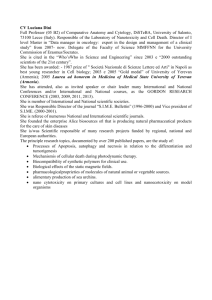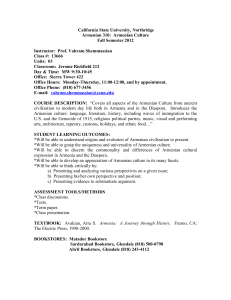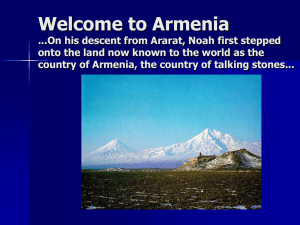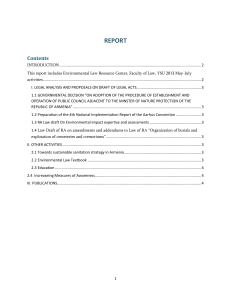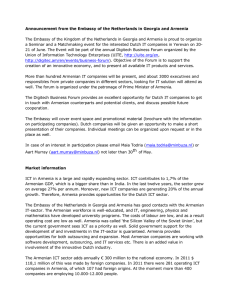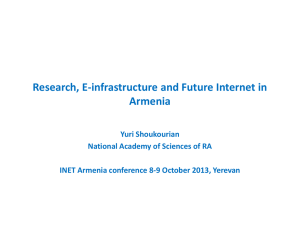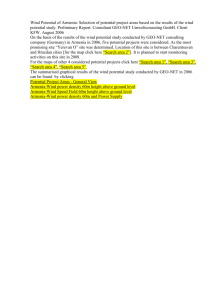Interest-based analysis of Armenia
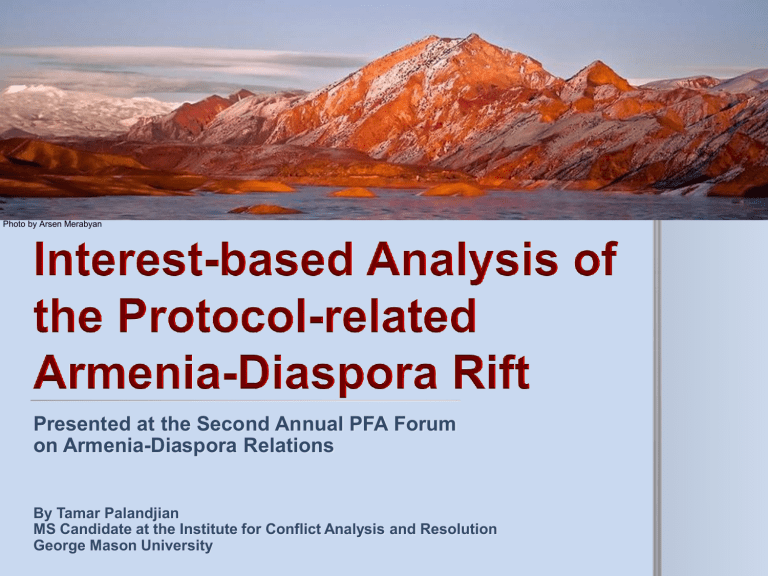
Photo by Arsen Merabyan
Presented at the Second Annual PFA Forum on Armenia-Diaspora Relations
By Tamar Palandjian
MS Candidate at the Institute for Conflict Analysis and Resolution
George Mason University
“And let no one ignore the fact that, contrary to any slogans, the
Armenian nation is united in its goals and is strong with its sons and daughters. And let no one try to split Armenia and our brothers and sisters in the Diaspora in presenting their concern over the future of
Armenia as an attempt to impose something on the Republic
Armenia.”
-- President Serge Sargsyan
“Address to All Armenians” on October 10, 2009
Source: http://www.armeniaforeignministry.com/news/inthenews/naxagah_eng.pdf
“Diaspora and Armenia have never been so distant from each other.”
-- Former Armenian Foreign Minister Vartan Oskanian on Sept. 22, 2009
Source: http://www.civilitasfoundation.org/cf/discussions/227-oskanian-rejects-armenia-turkey-protocols.html
“Armenian government which was not freely and fairly elected is assuming the responsibility to negotiate on behalf of our [Diasporan] lineage and legacy from the Armenian Genocide. It’s not only an inherent threat to our identity and interests. And I think this explains a lot of the backlash.”
-- HETQ Interview with Richard Giragosian, ACNIS Director on Jan 11, 2010
• Thousands protest in
Diasporan communities and in Armenia since Oct
2009
• $15.8 million USD in 2009
All-Armenian Fund Telethon held November 2009
– compared to $35m raised in
2008
• Individuals stereotyping the
Diaspora and Armenia
– “us vs. them”
– Potential for escalation into conflict
Source: http://www.ianyanmag.com/?p=1394
Source: http://frontlineclub.com/blogs/onnikkrikorian/2009/10/round-theclock-protest-ahead-of-possible-armenia-turkey-breakthrough.html
• How can we begin to identify what is causing the rift in the relations between Armenia and its Diaspora?
– Distinguish between Positions and underlying
Interests
– Brief overview of Positions vs. Interests in
Armenia and Armenian-American Diaspora
• What steps can be taken to increase mutual understanding amongst all parties involved?
– Move toward Interest-based discussion between parties
– Dialogue between Diaspora-Armenia
– Further studies, research and projects on this topic
• Ways to deal with difference
• Avoid
• Force decision upon another
• Compete
• Yield to other’s demands
• Come to a compromise solution
• Parties’ needs are not satisfied
• All are based on our Positions
Position is what we seek to achieve in a disagreement or conflict
• Getting to Yes by Roger Fisher, William Ury and Bruce Patton offer alternative Interestbased approach
• What is the interest-based approach?
– Distinguish between Interests and Positions
“Your position is something you have decided upon.
Your interests are what caused you to so decide.”*
– Interest is the why question
• Apricot Story
Position= Lilit wants the apricot.
Sarkis also wants the apricot.
Interest = Lilit wants the apricot because she wants the seed inside the apricot.
Whereas, Sarkis wants to actually eat the apricot.
* Source: Getting to Yes p.42
• Not all-or-nothing scenarios, potential for
“win-win” solutions
• There are shared interests
• Moves away from disagreement and conflict in a relationship to establishing or strengthening relations between parties
• Increase understanding of the interests underlying parties’ positions
• Potential to decrease rift or tension in relations and disagreement
• Determining interests
• How to go about it:
- When you come across a position, ask “why”
- Also, ask “why not?” Think about their interests, their choice, what impact it might have on them and their relations with others
- Recognize there are many interests involved
- Make a list of your Position and Interests
- Look at the interests underneath explicitly made statements
Source: Getting to Yes, page 44
• Distinguish between the parties’ interests and positions for Armenia and Diaspora
• Shift away from focus on Positions
• Discussions and dialogue around our
Interests between Armenia and Diaspora
• Looking ahead, what steps could we take to continue the dialogue and keep lines of communication open?
• Complex nature of both parties, Armenia and Diaspora
• Focus analysis on
Armenia-US Diaspora relations
• Next question, who represents Armenian-
American Diaspora? And, who represents
Armenia?
• Perhaps in the future, more actions and projects focusing on an in-depth and inclusive interest-based analysis with all involved parties
• Convening sessions to be inclusive of all parties and stakeholders on the topic of
Armenia-Turkey protocols
• Engage in Dialogue based on interests
• Parties distinguish their Positions and Interests
– Introduction to Interest-based negotiation and conflict management skills
• Propose and implement joint projects
– All Armenian Conference(s)
• Academic, policymakers, young professionals, politicians and etc.
– Research projects focus on Interests-based analysis
Photo by Arsen Merabyan • What goals do we envision for Armenia?
• Both in the Diaspora and Armenia there is a desire to ensure:
- Nagorno Karabakh issue, security, peace and prosperity
- International recognition of Genocide
- Trade and economic development of Armenia
- Future of Armenian nation
other…
